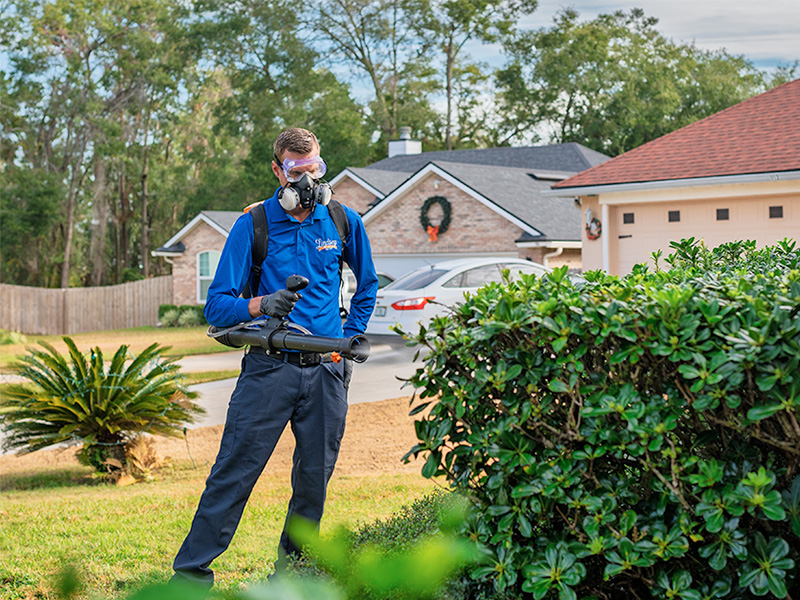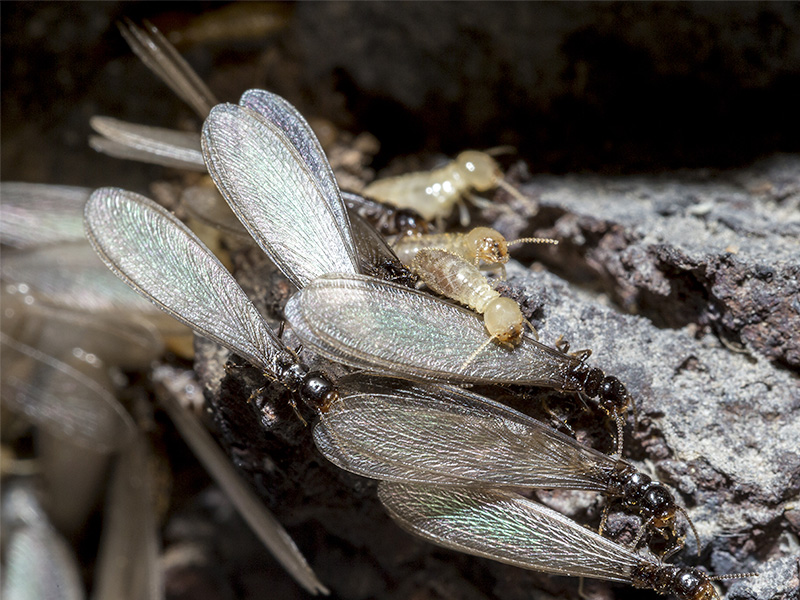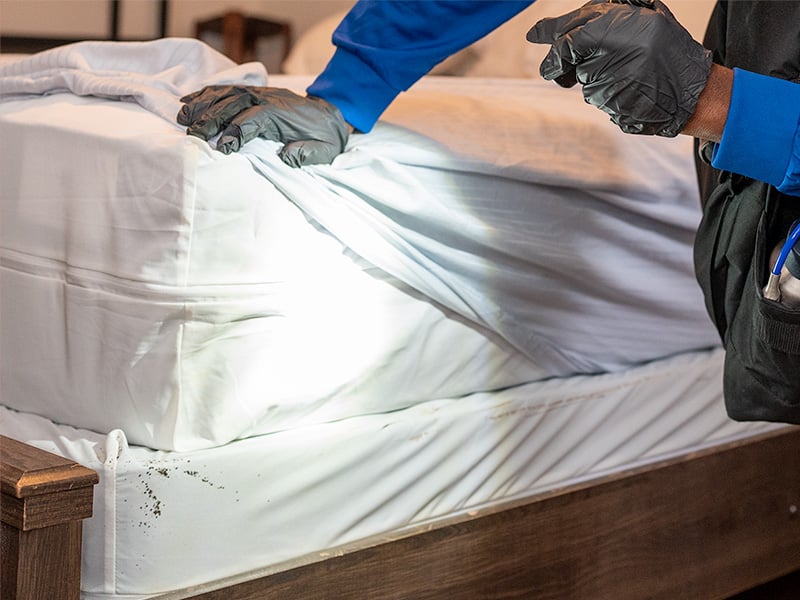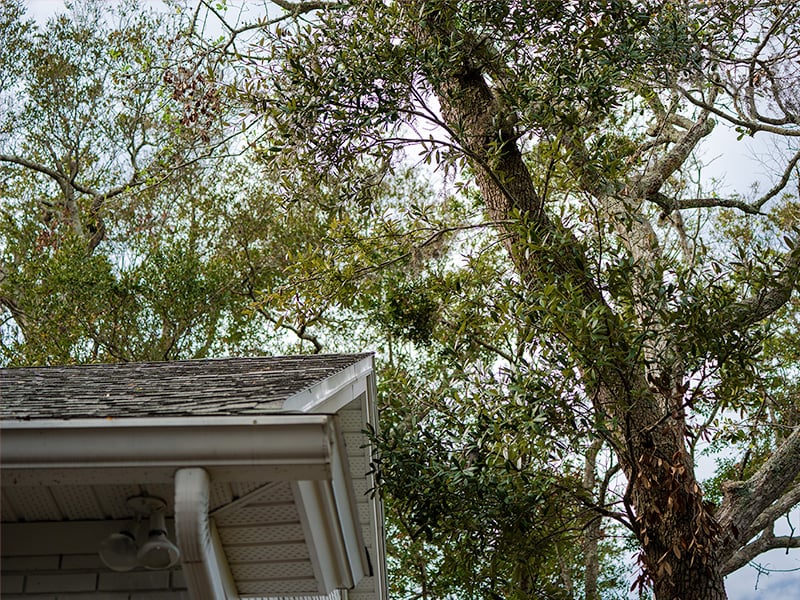Rodent Rundown: Keeping Mice & Rats Out
Owning a home comes with its share of responsibilities, and dealing with mice and rats is often one of them. Whether you live in Jacksonville, Green Cove Springs, San Marco, or elsewhere in Florida, the presence of rodents is more than just an inconvenience – it can pose serious health and safety risks. From identifying the signs of rodent activity to understanding the potential hazards of an infestation and learning how to prevent them, our locally owned and operated pest control company has put together this guide to help you protect your home and family from unwanted and uninvited rodents.
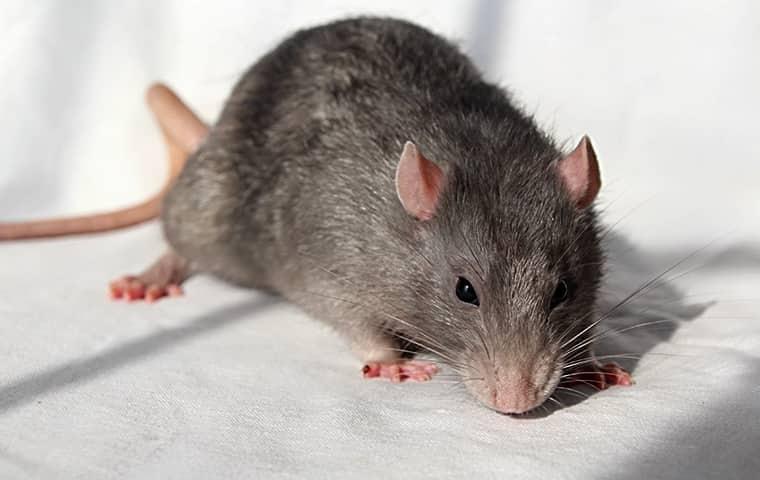
Common types of rodents in Greater Jacksonville
Let’s start by looking at the most common types of rodents you might come across in Greater Jacksonville. The main culprits are Norway rats, roof rats, and house mice. Each of these rodents has its own habits and behaviors, which can cause unique challenges for homeowners. Here’s what you should know about them.
Norway rats, also known as brown rats, wharf rats & sewer rats
Norway rats are large, stocky rodents with brown or gray fur and a knack for digging and burrowing under foundations or nesting in piles of debris. They are often found hanging out in basements, crawl spaces, and the lower levels of homes and buildings. Excellent swimmers, they navigate through sewers like champs and have a keen sense of smell that allows them to locate food quickly.
Roof rats, also known as black rats, ship rats & tree rats
Roof rats are the acrobats of the group. Dark-colored and more slender than Norway rats, these critters prefer the high life – literally. They love to climb trees and buildings and often find their way into attics and upper floors. As agile climbers, roof rats were commonly found aboard ships during the age of exploration and easily navigated ships’ rigging and structures. Once ships docked in new ports, these rats would disembark and settle into their new country. It is believed that these rodents arrived in Florida in the 1500s and, over time, adapted well to the warm climate.
House mice or Mus musculus
Don't let their size fool you; house mice can cause significant issues. They're small and grayish-brown, with beady eyes and large ears. They’re known for their ability to squeeze through openings as small as ¼ inch in diameter, making it relatively easy to enter homes and other structures. Inside, they prefer nesting in undisturbed areas out of view of occupants but close enough to food and water sources. Behind kitchen appliances, within walls and ceilings, under cabinets, and in attics and other storage areas are just a few of the places house mice will nest if they find a way indoors.
Dangers associated with rodents
We've introduced you to the common rodent types you might encounter. But why should this matter to you? What's the big deal? Let's take a closer look at why effective rodent control in Greater Jacksonville and throughout the First Coast is non-negotiable for any homeowner.
Health risks posed by rodents
Rodents carry a handful of issues, health-wise. Here's the rundown:
- Rats and mice can transmit diseases like salmonella and hantavirus.
- They could also be carriers of leptospirosis, a bacterial infection you don't want in your life.
- They can even carry ticks and fleas, which bring their own set of health issues.
And if diseases weren't enough, these critters can also be quite the irritants – literally. Their droppings, urine, saliva, fur, and even the trails they leave behind can cause allergies and aggravate asthma. In simple terms, rodents are a definite no-go if you've got someone in your home with respiratory issues.
Rodents can also host parasites like mites and lice. Let's keep it real: When you've got rodents, there’s a chance you’ve got more than just rodents.
We can’t forget about rodent hygiene. These creatures defecate wherever they go. Their droppings and urine can infiltrate living spaces, contaminate surfaces, and potentially spoil food.
The smell associated with a rodent infestation serves as a serious warning sign. Often, this odor results from a combination of rodent waste and decaying animals tucked away in hidden areas. This smell not only compromises indoor air quality but also signals a more severe infestation that demands immediate attention.
Property damage caused by rodents
Let's discuss the damage rodents can cause. Their strong, constantly growing teeth and instinct to gnaw can cause significant problems in your home. Rodents aren’t just a minor inconvenience—they’ll chew through wires, wood, insulation, and plastic, leading to potentially serious issues.
Gnawed electrical wires can be costly to repair and can even pose a fire hazard if not fixed. Similarly, if rodents chew on water pipes, you could face potential flooding. Of course, rodents chew on and damage more than building materials; they also damage and destroy clothing, holiday decorations, furniture, and other personal belongings.
In short, their chewing habits can lead to significant risks to both your property and your safety.
Rodents are also remarkably talented at multiplying. Because they breed so quickly, their presence in your home can lead to increased damage. Think about it: more rodents mean more nests. And where do they find the materials for these nests? Your insulation, your stored items, and even your walls. Before you know it, the integrity of certain areas in your home starts to deteriorate. In a worst-case scenario, they might even dig into the actual framework or foundation, compromising the stability of your home.
How to rodent-proof your home
Now that we’ve identified the risks associated with mice and rats let’s spend some time focusing on how property owners can make their homes and buildings less inviting to these unwelcome visitors.
- Inspect & seal entry points
Homes and structures have entry points you know about and some you don't. For rodents, a tiny hole in the foundation, a gap around the crawl space door, or a gap under the garage door serves as a way in. Inspect your home meticulously, from attic to ground level, and seal any potential entry points with rodent-proof material. It's a weekend DIY project that could save you countless headaches down the line. - Maintain a clean yard
Keeping the outside pristine goes a long way in deterring backyard rodents. To that end, we recommend trimming trees and bushes that come up against the structure, hauling away debris, storing firewood at least 20 feet from the house and up off the ground, eliminating standing water, and securing compost bins with lids that latch tightly. You should also clean up pet waste and remove other food sources, such as bird seed and fruit that have fallen off trees. Keep outdoor dining and grilling areas clean, as well as grease and crumbs, which will attract rodents. - Practice proper sanitation and waste management
Rodents are scavengers at heart. If your trash is a feast, they'll come calling. Secure your waste in bins with lids that latch tightly. And don't forget to regularly empty indoor trash cans, especially those in the kitchen. - Store food and pet supplies securely
Rodents love to dive into boxes of cereal, other human food, and bags of dog food. It’s like an all-you-can-eat buffet. Invest in airtight containers for your food storage. Your pantry should not be a rodent restaurant.
Consistency is your friend here. Stick with these habits, and you'll make your home far less appealing to rodents. Frequent check-ins on those sealed entry points and regular yard maintenance go a long way. Keep cleanliness a priority, and you'll be doing your part in rodent prevention.
What to do if you suspect rodents have infested
If you have reason to believe mice or rats have infested your house but aren’t quite sure, look for these signs:
- Rodent droppings
Check for mouse or rat droppings near food sources, along baseboards, or in hidden areas such as behind appliances or in storage areas. - Gnaw marks
Look for gnaw marks on wires, wood, insulation, and other building materials, as well as cardboard boxes and personal belongings. - Nests
Rodents build nests in cluttered areas or places that aren’t visited frequently by humans. They typically use shredded paper, fabric, insulation, twigs, and other materials from outside to build nests. - Nocturnal noises
You can tell rodents are in residence if you hear squeaking, scurrying, and scratching noises coming from wall voids, ceilings, and other areas, especially at night.
When to call in rodent control experts
Despite best efforts, mice and rats sometimes find a way inside. If you’ve discovered rodents and are having difficulty eliminating these destructive pests, it's time to call in the professionals.
Advantages of professional rodent extermination
Here's the thing: While DIY solutions might offer a quick fix, they lack the staying power of a comprehensive approach. A professional exterminator brings a lot to the table. Here at Lindsey Pest Services, we not only address the immediate problem but also put measures in place to prevent future infestations. It's not just about treating the symptom but the underlying cause.
Moreover, every rodent problem is unique – there is no one-size-fits-all solution. Trained pest control specialists conduct in-depth assessments and customize treatment plans. We also prioritize safety by ensuring the methods used are people and pet-friendly.
Contact Lindsey Pest Services for expert rodent control in JAX
Here at Lindsey Pest Services, we pride ourselves on providing top-notch rodent extermination services tailored to our customers’ unique needs. We know that dealing with a rodent infestation is more than just an inconvenience for property owners. That's why our team of experts focuses on comprehensive solutions that offer both immediate relief and long-term prevention.
Our methods are practical and efficient and include:
- Rodent trapping and removal
- Rodent baiting
- Exterior rodent monitoring
- Odor removal services
- Rodent clean-up services
- Rodent exclusion
- Year-round home pest control services that bundle insects & rodents
We've got your back from the initial inspection to treatment and follow-up. If you’re ready to evict rodents for good, contact Lindsey Pest Services today!
Get Your Free Pest Control Quote Today!
Complete the form below to get started with your free, no-obligation quote, and a Lindsey Pest representative will contact you shortly.
Same Day Service Available!
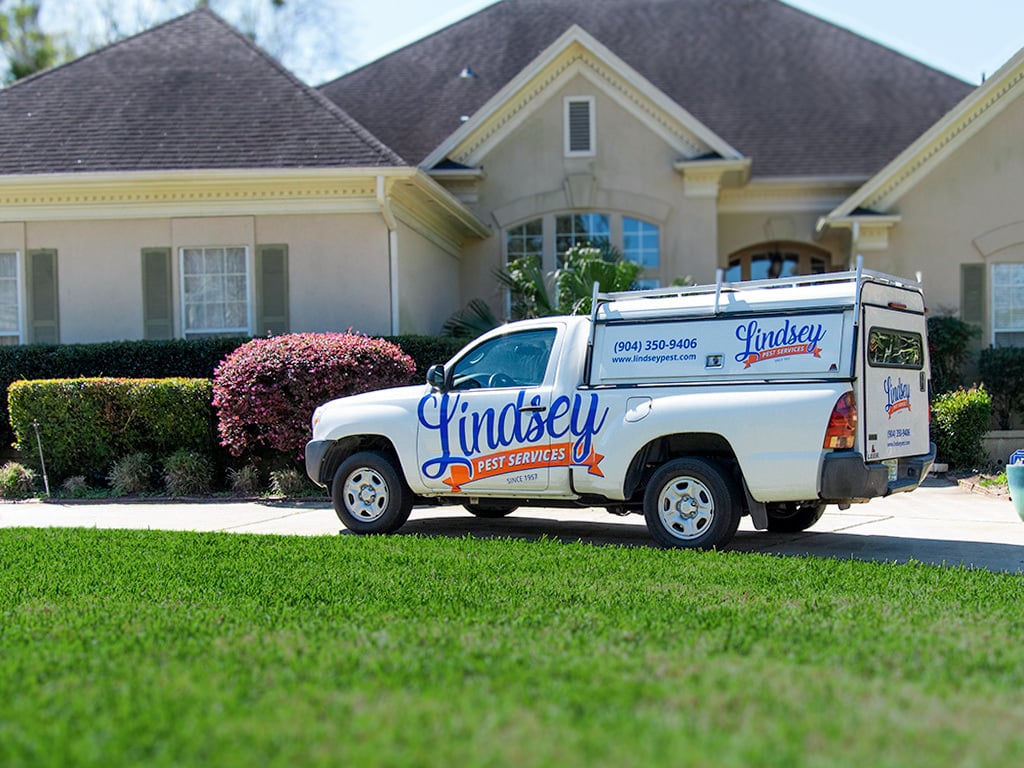
Blog Posts








